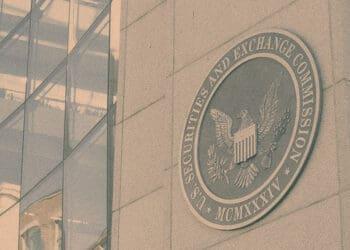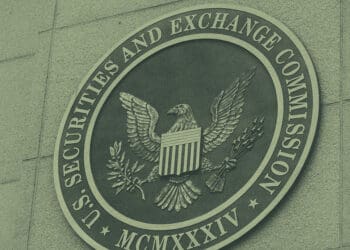The convergence of digital assets, decentralized finance and algorithm-driven trading has created a regulatory landscape that’s increasingly difficult to navigate, with 20th-century frameworks struggling to keep pace with modern innovation. Barclays’ Abhishek Nagesh argues that the next decade presents a critical opportunity for policymakers to reshape global regulatory frameworks, outlining three key priorities: modernizing banking regulations, harmonizing global standards and preparing the next generation of regulatory leaders.
Global finance continues to evolve at a pace few could have predicted and with changes seemingly happening overnight as regulation is being pushed to its limits. The convergence of technological innovation, rising cross-border transactions and the emergence of new financial products and companies has created a regulatory landscape that’s increasingly difficult to navigate. For policymakers, the next decade presents a critical opportunity to reshape global regulatory frameworks to ensure stability, encourage responsible innovation and prevent the kinds of systemic failures that shook the world economy in 2008 and again, more subtly, during the turbulence of the 2020s.
To rise to this challenge, there are three key areas policymakers must prioritize: modernizing banking regulations to meet the pace of financial innovation, harmonizing global regulatory standards and preparing the next generation of regulatory leaders to guide the system with clarity and foresight.
Adapting regulations for financial innovation
The past decade has seen the rapid emergence of digital assets, decentralized finance (DeFi) and algorithm-driven trading platforms. Fintechs and neobanks have redefined what it means to be a financial institution, while traditional banks have rushed to adapt their infrastructure and offerings in response.
Despite these advancements, regulatory frameworks have remained largely rooted in 20th-century structures. The mismatch between innovation and oversight creates a vacuum where risk accumulates undetected. Regulators are often caught playing defense and trying to catch up to developments only after vulnerabilities have been exposed.
In the coming years, regulators must shift from reactive to proactive. This means building capabilities for real-time monitoring of digital financial systems, developing flexible regulatory sandboxes that allow experimentation within controlled environments and implementing principles-based frameworks that evolve alongside technology.
A forward-looking, dynamic approach to risk assessment is also critical. Traditional models, which rely heavily on historical data and lagging indicators are often inadequate when applied to fast-changing markets influenced by AI-driven trading, tokenized assets and rapidly shifting consumer behavior.
For instance, in SEC v. Ripple (2023), a federal judge ruled that Ripple’s institutional sales of XRP violated securities laws while programmatic sales on exchanges did not. This highlights both the obsoleteness and the complexity of applying old laws (like the Howey test from 1946) to new digital assets. Such regulatory gray areas on what is or isn’t a security, as an example, are where the fine-tuning of regulatory rules is required to ensure appropriate governance of this innovative, game-changing financial product.
Regulation vs. Innovation: The Tug-of-War Defining Finance’s Future
AI compliance creates a global patchwork where EU fines reach €35 million while the US encourages growth — leaving financial firms navigating contradictory rules
Read moreDetailsCreating a standardized global framework
One of the clearest lessons from past financial crises is that economic interdependence demands continuous regulatory coordination. Yet global regulatory fragmentation remains a persistent issue. While institutions like the Financial Stability Board (FSB) and Basel Committee have made strides, enforcement remains uneven and jurisdictional inconsistencies often create loopholes that can be exploited by bad actors. Or worse, such inconsistencies often lead to inefficiencies in capital optimization across the economies.
As financial products and platforms continue to transcend borders, the need for a standardized regulatory architecture becomes more urgent. Cryptocurrencies and DeFi protocols, for example, operate globally by design yet are subject to patchwork oversight. Inconsistencies in how different jurisdictions treat stablecoins or digital identity verification pose not just legal headaches but systemic risks.
The future must include a collaborative framework where global regulatory bodies work closely with national governments and private-sector stakeholders to craft universal principles. These should include common definitions, coordinated risk assessments and shared approaches to consumer protection, cybersecurity and operational resilience.
Technological solutions like cross-border data-sharing platforms and interoperable compliance systems can support this harmonization effort. But ultimately, success requires political will, diplomatic alignment and the recognition that financial health in one region affects the rest of the system.
Global banks often face the burden of juggling conflicting regulatory obligations across different jurisdictions, diverting vital attention and resources away from strengthening their own cybersecurity. For example, a US bank operating within the European Union must simultaneously adhere to both the Gramm-Leach-bliley Act (GLBA) and the GDPR, two frameworks that impose distinct timelines, breach disclosure protocols and data-handling requirements. Rather than enhancing digital defenses, institutions are compelled to assemble overlapping compliance units to address each regime, resulting in duplicated efforts, operational drag and regulatory burnout. Moreover, cybersecurity teams are frequently pulled into audit cycles led by multiple authorities, reducing their capacity to focus on preventive threat mitigation.
The role of the next generation of regulatory leaders
Regulatory transformation isn’t just about frameworks; it’s also about people. As our interconnected financial system grows more complex, there is an urgent need for leaders who can bridge the gaps between policy, technology and markets. These leaders must be fluent in both the language of regulation and the architecture of modern finance. They must understand the intricacies of AI modeling, the implications of tokenized economies and the challenges of cybersecurity and data privacy.
Equally important is the ability to think long-term. Many regulatory crises have stemmed from short-sighted decision-making, where immediate political or market concerns overshadowed the need for systemic resilience. The future demands leaders who can anticipate emerging risks before they become problems, who can balance innovation with integrity and who can guide regulatory bodies with transparency and conviction.
This is one of the key reasons why I consider regulatory compliance and holistic rulemaking not just an isolated subject matter but also one that impacts financial institutions. The impact of these rules extends beyond the financial institutions and disperses across the world in myriad ways.
The formulation of capital regulations in the US serves as a cornerstone of global financial health, extending far beyond national borders. Given the outsized influence of US financial institutions, the standards set by US regulators often become de facto global norms, shaping how capital moves, how risks are managed and how resilient financial systems are worldwide.
These rules are not just bureaucratic frameworks but practical tools that determine whether banks can weather crises without collapsing under pressure. By reinforcing institutional soundness, they preserve trust in the global financial system and sustain the flow of global credit that underpins everything from entrepreneurship to homeownership. In essence, US capital rulemaking quietly but profoundly supports the economic infrastructure of modern life worldwide. Therefore, I see the role of financial risk management as a critical lynchpin that holds global prosperity and peace over a longer period of time.
Looking ahead
The next decade of financial regulation will define not just the future of banking but the stability of global economies and the inclusivity of economic systems. As innovation continues to accelerate, so must policymakers’ capacity to adapt. Striking the right balance between risk management and innovation support will be key. And as global boundaries blur, collaboration — not fragmentation — must become the default.
Individuals who combine technical expertise with a deep commitment to public trust will be invaluable in this environment. The future of financial regulation will be written not only by institutions but also by the people who choose to lead with foresight, integrity and a sense of global responsibility.
What is important to note is that distinct risks can connect and turn into a global crisis. Climate risk is deeply connected to the credit quality of bank portfolios. Cyber risk is intricately connected to AI’s prosperity as well as crypto’s acceptability. Fintech disruptions have the potential to create giant economies out of minions, and a failure in managing this innovation has the potential to spill over a crisis to mainstream finance and devastate developed economies. Finally, all of these risks are deeply intertwined with geopolitics and, thus, it is perhaps about time the global regulations are designed to cross-examine such interconnectivities and shed the old view of siloed risk management.




 Abhishek Nagesh vice president of regulatory policy oversight at Barclays. He is a seasoned finance professional with over 15 years of extensive experience in financial accounting, regulatory reporting, regulatory compliance and enterprise risk management. With deep expertise in BCBS, PRA and US Tri-agency regulations, he has subject matter expertise in credit risk, counterparty credit risk and market risk calculation methodologies.
Abhishek Nagesh vice president of regulatory policy oversight at Barclays. He is a seasoned finance professional with over 15 years of extensive experience in financial accounting, regulatory reporting, regulatory compliance and enterprise risk management. With deep expertise in BCBS, PRA and US Tri-agency regulations, he has subject matter expertise in credit risk, counterparty credit risk and market risk calculation methodologies. 






